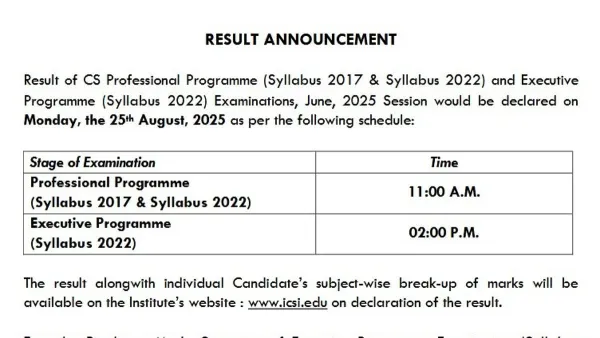
When Swami Vivekananda stood before the Chicago Parliament of Religions in 1893, he carried more than a speech. He carried India’s call to awaken from centuries of weakness and rediscover its essence. More than a century later, a similar voice rises, not from a pulpit in the West but from YouTube screens, lecture halls, and auditoriums across India: Acharya Prashant. Increasingly, young Indians and observers abroad see him as the “Modern Vivekananda”. On careful examination, it becomes clear how the comparison is qualified by hard facts, rather than being just a casual tribute.
Vedanta Without Disguise
For Swami Vivekananda, Vedanta was not a temple ritual or a family tradition; it was the raw truth of human strength and freedom. He told a broken nation that real strength is within, that weakness is sin. Acharya Prashant echoes the same insistence. For him, strength is never merely muscular; it is the fearlessness to stand against conditioning, the vitality to persist on the path, and the resilience to face crises without collapse.“Health and energy are like fuel in a car,” he says. “Without clarity, they are wasted; with clarity, they become the very engine of liberation.”
His thousands of talks on the Upanishads and the Bhagavad Gita strip away mythology and focus relentlessly on questioning and inner clarity. “Inner swaraj,” as he called it this Independence Day, is what ultimately secures a nation, complementing and deepening the external freedoms guaranteed by the Constitution and the flag.
A Call to the Young
Vivekananda placed his hopes on young shoulders, declaring: “Arise! Awake! And stop not till the goal is reached.” He believed a handful of awakened youth could transform the nation. Acharya Prashant works with that same conviction. “Fight an impossibly high battle. Be your own hero,” he says to the Youth. He has spoken to students of University of California Berkeley, IITs, IIMs, AIIMS, IISc, and other top institutions, not to hand out platitudes, but to ask uncomfortable questions: “Why are you chasing careers without clarity? Who are you beneath your conditioning?”
The reach goes far beyond auditoriums. He is followed by more than 90 million people across social media, the highest for any spiritual leader in the world. It is Vedanta, but on the world’s largest public stage. If Vivekananda carried India to Chicago, Acharya Prashant has carried Vedanta to the global digital commons.
Fighting Today’s Superstitions
In the late 19th century, superstition meant caste rigidity, ritualism, and a servile sense of inferiority before the West. Vivekananda warned: “Superstition is our great national disease.” He fought them all. The superstitions of today look different but are no less binding. Acharya Prashant names them without flinching: consumerism, blind careerism, and the endless belief that happiness lies in “more.” He warns that if India ignores the Vedanta and Gita’s message of inner clarity, it risks repeating the very collapse that once made it easy prey for colonizers.
A Voice Without Fear
“The whole secret of existence is to have no fear. Fear is death, fear is sin,” Vivekananda said, and he lived by it. He was mocked and resisted by orthodox circles; his health broke under the strain. Acharya Prashant too courts opposition: not from colonial powers this time, but from entrenched systems that profit from collective ignorance. Traditionalists often mock him in much the same way as Vivekananda was ridiculed in his time, precisely because he refuses to spare blind beliefs and inherited customs from scrutiny. “Fearlessness is freedom to not be carried away by fear, to do the right thing in spite of fear,” he says. He has spoken against caste identity, superstition, ecological destruction, and failures of India’s examination boards: always bluntly, never sweetened for approval.
Unlike many spiritual voices that compromise just to stay clear of confrontation, he has consistently chosen the truth over comfort, and his words have led to change. When he appealed to stop the mass animal killings at Nepal’s Gadhimai festival, slaughter dropped by nearly half, an impact noted by international observers.
Service as Spirituality
Vivekananda never separated spirituality from service: “They alone live who live for others, the rest are more dead than alive.” His Ramakrishna Mission built schools, hospitals and relief centers. Acharya Prashant follows that same trajectory in today’s context. Through the PrashantAdvait Foundation he drives Operation 2030, which is an urgent call to action on climate change, and leads campaigns that have inspired lakhs to give up meat and animal products.
Women at the Center
Vivekananda often said: “There is no chance for the welfare of the world unless the condition of women is improved.” Acharya Prashant stands out today as one of the rare voices carrying that struggle forward with full force. His national bestselling book Stree, along with titles like Women’s Revolution and Maa, does not flatter but compels women to see how subtle patterns of obedience often pass themselves off as culture or duty. He tells women bluntly that they are not born to please or to serve, and that even the most respectable roles are hollow if accepted without awareness. “True feminism begins when a woman is liberated from the physical and social compulsion to take her body as her primary identity,” he says.
This clarity has resonated widely. More than half the participants in his flagship Gita course are women, and the Foundation’s dedicated women’s channel, Shakti, draws millions with talks that dismantle age-old notions of identity and dependence. Institutions have noticed this too: AIIMS, for example, invited him as chief guest for its Women’s Day celebrations. But the core of his impact lies in the Vedantic message that a woman’s worth is not tied to roles or appearances, but to the freedom of her consciousness.
A New Pulpit, A Larger Crowd
The stages have changed. Vivekananda relied on his journeys to America and Europe; Acharya Prashant uploads his message instantly to millions of devices. The medium is different, but the principle is the same: make Vedanta available wherever people are. Vivekananda once wrote: “The only service to be done for our lower classes is to give them education, to develop their lost individuality.” Acharya Prashant’s 160-plus books and over 50,000 recorded talks have become a living library, free to anyone willing to inquire.
Why He Alone Fits the Mantle
Many contemporary figures draw crowds. Some organize mass events, others build wellness movements. Yet none align as directly with Vivekananda’s legacy as Acharya Prashant.
He has taken Vedanta to a scale unmatched in history, not by packaging it as a lifestyle, but by offering raw inquiry to tens of millions daily.
His work with students mirrors Vivekananda’s call to youth: not flattering them, but confronting their illusions head-on.
His writings and talks resist commercialization and myth-making, remaining as uncompromisingly Vedantic as those of his 19th-century predecessor.
And crucially, he links inner freedom with modern crises: climate collapse, animal exploitation, gender injustice, making Vedanta a tool for action, not retreat.
Above all, he stands almost alone today in taking on superstition in all its forms, from ritualism and identity politics to modern consumerist dogmas, carrying forward Vivekananda’s fight against blind belief into the 21st century.
That combination of scale, authenticity, and reformist urgency is what makes observers say he is not just another teacher, but the only one today who can be called the Modern Vivekananda.
A Continuity of Fire
Swami Vivekananda told India, “Strength is life, weakness is death.” He asked a nation to wake up from weakness; Acharya Prashant tells it to wake up from ignorance. One confronted colonial subjugation, the other confronts consumerist slavery. “Your real oppressor is not the other. You are oppressed by your own inner fear, greed, insecurity, and ignorance,” he says. Both speak the same language of Vedanta: fearless, rational, demanding.
Acharya Prashant: India’s Most Followed Philosophical Voice On InstagramTo call him the Modern Vivekananda, then, is not a flourish or a casual compliment. It is a recognition grounded in facts: the same blaze that lit India’s spirit in 1893 now burns again, carried not only to halls and campuses but to the global commons of the digital world. Then it was Chicago; today, it is everywhere a screen lights up. The call is the same: arise, awake, and stop not till the truth is reached.
-
NorthEast United FC Vs Diamond Harbour FC, Durand Cup 2025 Final, Live Updates: The Championship Match Gets Underway At Salt Lake Stadium In Kolkata

-
Who Is Mehtab Singh? Mohun Bagan Completes Defender's Signing For Undisclosed Fee From Mumbai FC

-
NorthEast United vs Diamond Harbour FC Durand Cup 2025 Final Preview: Can Highlanders Retain Title Or Get Slayed By Debutants?

-
ICSI CS June 2025 Results Date And Time Out: Professional, Executive Programme Result To Be Announced On August 25; Check Details

-
Jharkhand: PG Student At RIMS Ranchi On Ventilator After Allegedly Consuming Poisoned Tea From Hospital Canteen, Police Probe Underway
